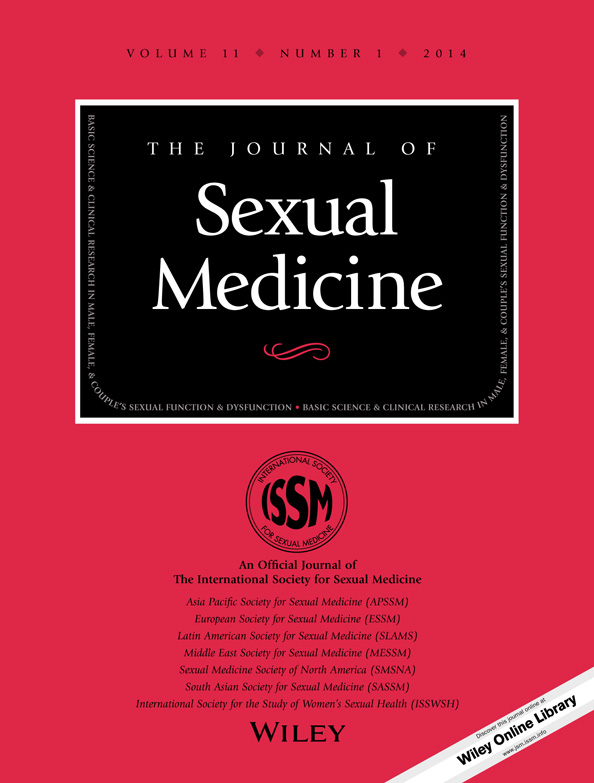Physicians' Attitude toward Female Genital Plastic Surgery: A Multinational Survey
Abstract
Introduction
The demand for female genital plastic surgery (FGPS) has increased over the last few decades. Yet, to date, there are no objective explicit measurements to define “abnormal” appearance of genital organs. Using the results of this study, we aimed to produce a statement of the European Society for Sexual Medicine (ESSM) on FGPS practice.
Aims
To evaluate the prevalence of demand for FGPS and to explore the attitudes of sexual medicine specialists toward indications for FGPS.
Methods
Attendees of the 2012 Annual Congress of the ESSM in Amsterdam, the Netherlands, were asked to participate in a survey during the congress.
Main Outcome Measure
A 25-item self-report, closed-question questionnaire subdivided into three sections: sociodemographic data, professional background, and personal attitudes toward FGPS.
Results
Overall, a total of 360 physicians (mean age 48 years; range 23–72) from different medical disciplines completed the survey. There were diverse responses among participants regarding the definition of abnormal labial appearance and the techniques for labial reduction they perform. Overall, 65% responded that FGPS is frequently or occasionally demanded by the patients they treat. Likewise, most physicians (63%) reported that they never perform FGPS. Conversely, only 14% reported that they either frequently or occasionally perform FGPS. Almost one-third of participants believe that FGPS (labial surgery) improves sexual function. Fifty-two percent of participants answered that they believe that self image is the main reason for women to ask for labial surgery.
Conclusions
Self-image was regarded as the main factor in the demand for FGPS. Many practitioners in the field of sexual medicine recommend that women be referred for consultation with a psychiatrist or psychologist before undergoing FGPS. Lowenstein L, Salonia A, Shechter A, Porst H, Burri A, and Reisman Y. Physicians' attitude toward female genital plastic surgery—A multinational survey. J Sex Med 2014;11:33–39.




